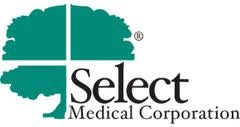Six weeks ago, I outlined my plans to create a portfolio of 10 companies that all have one thing in common: They provide a basic need or deliver life’s necessities. It’s my contention that basic-needs companies can offer investors stability and growth throughout any market environment thanks to consistent demand, incredible pricing power, and delectable dividends. This portfolio, which I have dubbed the Basic Needs Portfolio, will be pitted against the S&P 500 over a period of three years with the expectation of outperformance for all 10 stocks. I’ll be rolling out a new selection to this portfolio every week for the next four weeks.
You can review my previous five selections here:
Waste Management, Inc. (NYSE:WM)
Intel Corporation (NASDAQ:INTC)
NextEra Energy, Inc. (NYSE:NEE)
Mastercard Inc (NYSE:MA)
Chevron Corporation (NYSE:CVX)
Today, I plan to introduce the sixth of 10 selections to the Basic Needs Portfolio: Select Medical Holdings Corporation (NYSE:SEM).
How it fits with our theme
The first thing worth noting here is that not every company in a portfolio filled with stocks that take care of life’s necessities needs to be worth $100 billion in market value. In fact, I’d be surprised if more than 10% of readers knew what Select Medical Holdings Corporation (NYSE:SEM) is, or what it does, off the top of their head. But, sometimes the best hidden gems are those companies that are yet undiscovered.
Select Medical Holdings Corporation (NYSE:SEM) operates 110 specialty hospitals which deal with long-term acute care needs of patients and 12 inpatient rehabilitation centers within the United States. Some of you (me included) would rather be hogtied kicking and screaming before we’d go see a doctor for anything. However, when you’ve broken your arm or develop a life-threatening illness, there isn’t much of a choice but to go to the hospital.

Source: KOMUnews, Flickr.
Because it’s extremely expensive to build hospitals and purchase the medical equipment used in them, as a potential patient you aren’t exactly going to get many choices with regard to which one to go to. This gives hospitals pricing power that is pretty much unprecedented. In addition, hospital pricing per procedure — because of the complexity of insurance companies being involved — is about as opaque as it gets. This means that one hospital can charge considerably more than another for a similar procedure, yet few patients have the luxury of finding this out ahead of time before care is needed. Let’s face it — if you’re having a heart attack, you don’t have the luxury to drive 550 miles to a hospital that will treat you for half the cost.
Ultimately, we’ll almost all need some level of medical care in our lifetime and hospitals deliver incredible pricing power, making the sector — and Select Medical Holdings Corporation (NYSE:SEM) — a logical choice to fit our theme.
The risk
Like with every other company we’ve examined previously, even the hospital sector isn’t without its fair share of risks.
The biggest concern for hospital operators is doubtful account provisions. These bad debt write-offs stem from patients who are uninsured and need treatment, but who are unable to pay the bill. Unlike insurers, hospital operators can’t turn away patients in need of treatment, which means they can eat quite a bit of treatment revenue each year. HCA Holdings Inc (NYSE:HCA) and Tenet Healthcare Corp (NYSE:THC), the two largest hospital operators in the U.S., know this all too well. In 2012, HCA Holdings Inc (NYSE:HCA) wrote off nearly $3.8 billion in revenue because of patients’ inability to pay, a tad more than 10% of its full-year revenue, while Tenet Healthcare Corp (NYSE:THC)’s doubtful account provision totaled $785 million, or nearly 8% of its total revenue. This doubtful account revenue is the main drag on hospital expansion.
Medical costs and Medicare reimbursement rates also present another very large ongoing concern. Without any true pricing regulations in place, medical device makers and branded-drug companies — especially orphan drug developers — are able to boost the pricing of their products to a level that nets them consistent returns at the detriment of hospitals paying for these products and the patient who is likely to pay a percentage for the treatment and medication as well.
With the coming implementation of the Patient Protection and Affordable Care Act, known also as Obamacare, on Jan. 1, hospitals should also be expecting the potential for Medicare reimbursement cuts. The basis for the implementation of Obamacare, in addition to increasing the number of insured individuals in the U.S., is to reduce costs — both in terms of rising premium costs to consumers and also in the amount that the government pays out to for-profit medical companies.
Last week, we saw home-health sector stocks like Amedisys Inc (NASDAQ:AMED) and Gentiva Health Services, Inc. (NASDAQ:GTIV) get clobbered because the Centers for Medicare and Medicaid Services recommended a 1.5% reduction in Medicare reimbursements each year between 2014 and 2017. With Amedisys Inc (NASDAQ:AMED) and Gentiva Health Services, Inc. (NASDAQ:GTIV) reliant on Medicare for more than 80% and 90% of their revenue, respectively, it could put hospitals that rely on government reimbursements in a growth bind.
Why Select Medical?
Whereas Obamacare may represent a small negative with regard to its effects on Medicare reimbursements, it will, on the whole, be a huge boon for the hospital sector and Select Medical Holdings Corporation (NYSE:SEM).

Source: Army Medicine, Flickr.
To begin with, the PPACA, through the individual mandate, will require everyone to carry health insurance or face a penalty. This should go a long way to virtually eliminating the number of uninsured patients that Select Medical Holdings Corporation (NYSE:SEM) treats at its hospitals and drastically reduce its doubtful account provision. With more revenue going directly to its bottom line, we could be talking about a quicker expansion, better equipment in Select Medical’s hospitals, or perhaps even a dividend boost.
Another factor worth mentioning with regard to the PPACA is the expansion of Medicaid services to 16 million currently uninsured people. A recent poll by Gallup demonstrated that the uninsured would certainly prefer to have health care if they had the choice, but have been deterred by its previously high costs. Under the PPACA, these lower-income individuals will have all, or at least some, of their health care subsidized by the government, which should result in more preventative doctor visits — a good thing for hospital operators.
In the hospital sector, it’s also about valuation. Select Medical stands out as the clear value leader with a forward P/E of just 8.5 compared to HCA, which is approaching a forward P/E of 10, and Tenet, which is closing in on 13. Neither is particularly “expensive” per se, but only Select Medical pays its shareholders a quarterly dividend — currently $0.10. If Select Medical can keep up this $0.40 annual payout — which I think is possible because of the expected lowering in doubtful accounts and an influx of Medicaid patients over the coming years — shareholders will be privy to an annual yield near 5%.
Stay tuned next week, when I’ll unveil the sixth selection to the Basic Needs Portfolio.
The article Basic Needs Portfolio Selection: Select Medical originally appeared on Fool.com.
Fool contributor Sean Williams has no material interest in any companies mentioned in this article. You can follow him on CAPS under the screen name TMFUltraLong, track every pick he makes under the screen name TrackUltraLong, and check him out on Twitter, where he goes by the handle @TMFUltraLong. The Motley Fool owns shares of Intel, MasterCard, and Waste Management. It also recommends Chevron, Intel, MasterCard, and Waste Management.
Copyright © 1995 – 2013 The Motley Fool, LLC. All rights reserved. The Motley Fool has a disclosure policy.





